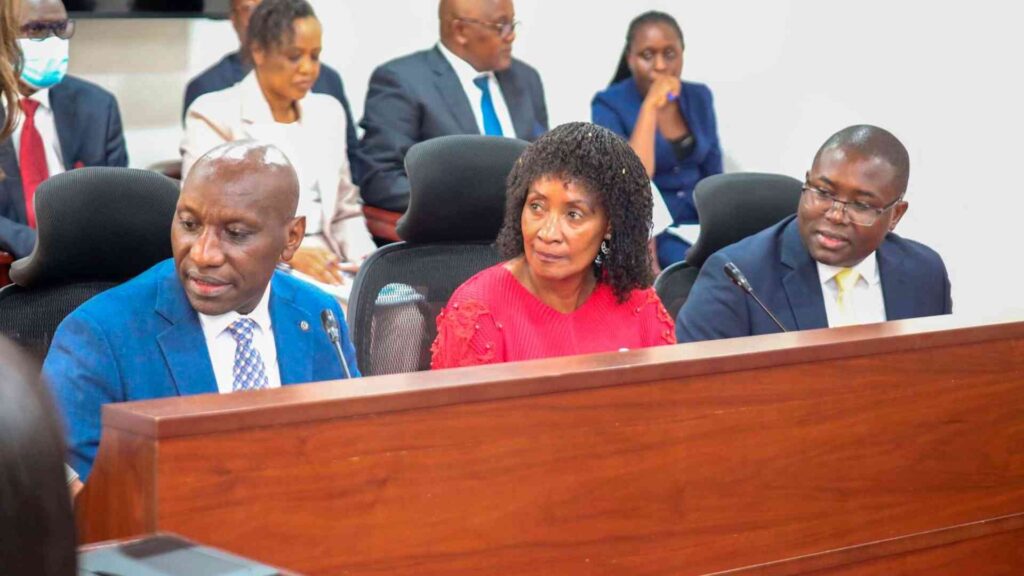TSC Issues New Surcharge Policy to Curb Misuse of Public Funds.
In a circular dated April 22, 2025, and seen by teachersupdates.news, the Teachers Service Commission (TSC) introduced a firm directive on the implementation of a surcharge policy, reinforcing the fight against financial mismanagement within the education sector. This move aligns with the national goal of eliminating financial leakages and promoting accountability in the public service.
TSC reiterated its commitment to the government’s broader agenda of fighting corruption and economic crimes by ensuring the responsible use of public funds. The circular outlines the Commission’s strategy to strengthen institutional mechanisms and enhance legal frameworks in response to the country’s call for expedited resolution of corruption-related cases.
According to the Commission, the new policy is part of its obligation to uphold constitutional values and financial integrity in line with the Public Finance and Management (PFM) Act.
Among the critical initiatives already implemented is the “Management of Salary Over-payments, 2020” policy. Its objective is to establish a robust and effective surcharge system to prevent fraud, misappropriation, and other forms of financial wastage.
The TSC emphasized that its employees, especially Heads of Institutions, must adhere to Section 74 of the PFM Act, which demands sound financial practices and professional conduct in managing public funds. The circular referenced Articles 22.6 (5), 201, and 232 (b) of the Constitution, underscoring the need for responsibility in public resource use.
Surcharge Enforcement and Disciplinary Measures
As part of this national effort, TSC has established a strict internal framework to support accountability in public service. According to TSC CEO Dr. Nancy Njeri Macharia, the Commission has resolved to eliminate financial leakages by fully institutionalising a comprehensive surcharge system. She explained that this would be essential in protecting public resources from wastage, misallocation, misappropriation, and fraud.
The Commission directed that, in all instances where public funds are lost, misused, or unaccounted for:
- Employees responsible will be surcharged for the amount lost or wasted.
- Disciplinary action will be taken against those named in audit reports, whether internal or external, for their involvement in financial mismanagement.
- TSC will intensify cooperation with other state agencies such as the Ethics and Anti-Corruption Commission and the Directorate of Criminal Investigations to ensure appropriate legal measures are taken.
One senior official from the Commission stated that these measures reflect a “zero-tolerance policy towards economic crimes within the education sector.”
As part of the ongoing reform efforts, TSC has begun reviewing its internal policies to align with national priorities for prudent public resource management. Additionally, sensitization programs will be launched at both institutional and field levels to reinforce the importance of fiscal discipline among employees.

Nancy Macharia, the Commission’s Chief Executive Officer, emphasized the importance of compliance, stating, “All staff must internalize these procedures and adhere fully to them.” She noted that the new direction marks a firm step in promoting financial accountability across the education sector.
An internal source added that “the revised approach is not only punitive but also preventive, aiming to build a culture of financial responsibility.”
Read Also: KNUT Pushes for Compensation of Dismissed Teachers
Call to Action for All TSC Staff
All employees of the Commission are expected to familiarize themselves with the policy directives and implement them effectively. This includes observing financial accountability standards and maintaining transparency in resource management.
Employees flagged in either internal or external audit reports for contributing to financial loss or wastage will face surcharges equivalent to the lost amount. Additionally, disciplinary proceedings will be undertaken against the named individuals. A senior TSC official stated that any staff found complicit will not only be required to refund misused funds but also face consequences under the Commission’s disciplinary code.
The circular was officially signed by Nancy Njeri Macharia, CBS, Secretary and Chief Executive of the Teachers Service Commission, and has been copied to:
- Felix K. Koskei, EGH, Chief of Staff and Head of Public Service, State House
- Dr. Jamleck Muturi John, EBS, Commission Chairman, Teachers Service Commission
Policy on Salary Overpayment as Enforcement Tool
A central pillar of this reform is the Policy on Management of Salary Overpayment, introduced in 2020. This policy enables the Commission to recover overpaid amounts and reinforces fiscal accountability across all levels. The Commission confirmed that this tool would be actively used to track and recover financial leakages linked to payroll errors and fraudulent claims.
One TSC field officer, during a sensitisation session, expressed concern that the initiative was long overdue, saying that the Commission had previously suffered silent losses due to lax internal controls. Another officer acknowledged that the policy now gives teeth to the Commission’s accountability efforts.
To reinforce its efforts, TSC is strengthening collaborations with key state agencies, including the Ethics and Anti-Corruption Commission (EACC) and the Directorate of Criminal Investigations (DCI). These partnerships are expected to expedite investigations and support criminal prosecutions where necessary.
All TSC staff and institutional heads have been reminded of their obligations under Section 74(4)(a) of the PFM Act, which outlines the need for prudent financial management and professional accountability. In a circular copied to the Chief of Staff and Head of Public Service, Felix Koskei, the Commission reiterated its dedication to upholding national priorities in safeguarding public funds.
Dr. Macharia emphasized that failure to adhere to these standards would not be tolerated, stating that public funds must be managed with the highest level of integrity and professionalism.




Discussion about this post